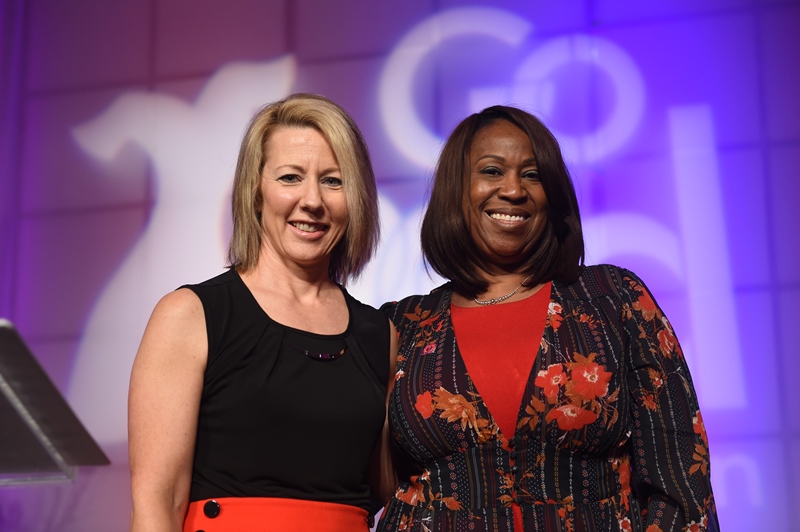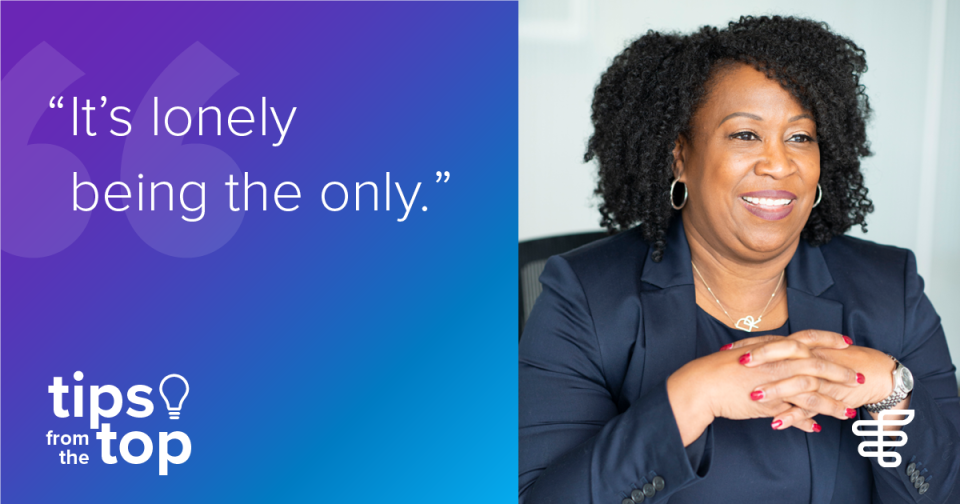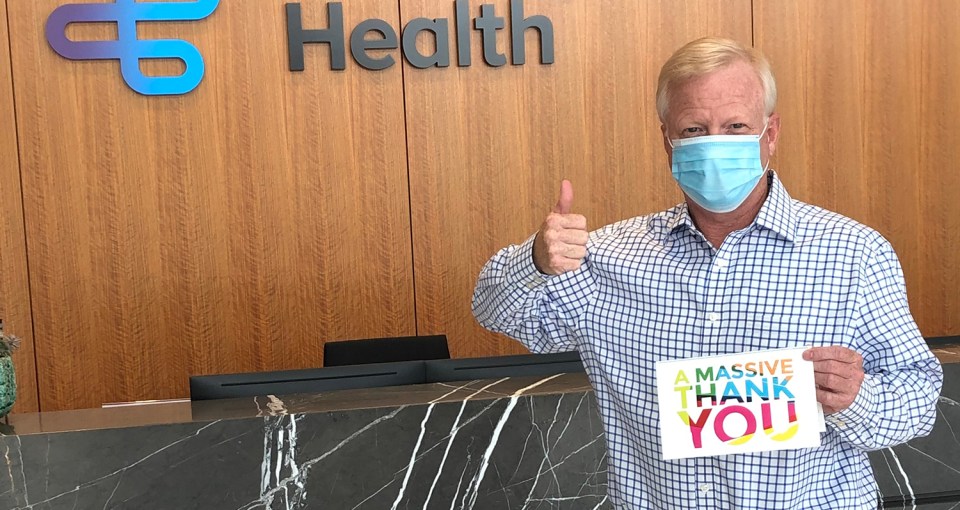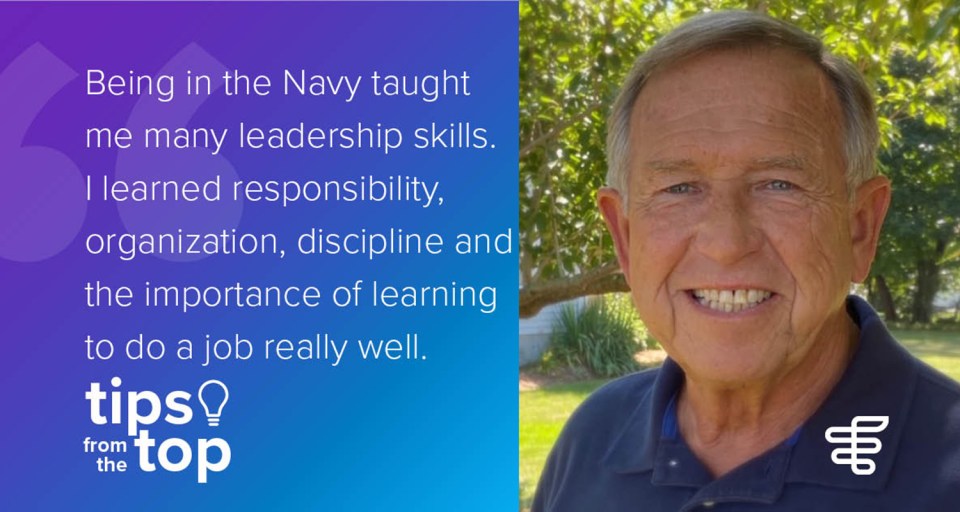I recently participated in a leadership forum where I was asked to describe my career path. Looking back over my years spent as a civil servant and later in corporate America, I marveled at how often I found myself being “the Only.” Whether it was my age, my race or my gender, there was often something that, on the surface, made me seem marginally different from my peers. From my first job as a deportation and detention clerk at what was then the Immigration and Naturalization Service where, at the age of 19, I was the only woman working in an office of eight men, to my current role as Encompass Health’s chief compliance officer, where I am the highest ranking woman of color, I was, and am, unique.
I wish I could tell you that each of the instances in my career where I was the “the Only” was storied and joyful and regale you with Pollyannaish tales of inclusiveness. Unfortunately, I can’t.
Being “the Only” can be challenging. Humans are tribal animals; we have an innate need to connect with others and to be part of a group. That need has frequently been explored in the context of the modern workplace, where it’s been shown that employees thrive in cultures characterized by trust and inclusion.

For example, Gallup’s employee engagement research has repeatedly found a concrete link between having friends at work and overall job satisfaction, finding employees who have close connections with their coworkers are more likely to be engaged in their jobs, are better at engaging customers, produce higher quality work, have higher well-being and are less likely to get injured on the job.[1]
But making those connections can be difficult when you don’t feel like part of the pack.
Early in my career, I found being “the Only” insufferable. Because I looked different, I felt different, too. So I cowered a bit more in those roles than I did when I was one of many. I was less likely to challenge other points of view for fear of being the lone voice of dissent or to do anything that might cast me in a less than stellar light, even momentarily. Despite working earnestly to earn my seat at the table, I felt like I could never rest on my laurels; I had to constantly prove to others that I belonged there. And because I was “the Only,” I dared not confide in my colleagues about my feelings for fear they wouldn’t understand or worse, discount my feelings.
It took the wise advice of a colleague who had also spent a large portion of her career as “the Only,” to change my outlook on the situation.
She said, “I’m not different, I’m unique. And so is everyone else around the table. So don’t hide who you are, because you bring something special to the table that they need, which is a different perspective.”
From then on, I began to embrace being different. And over the years, as I continued to hone my skills and became more comfortable in my skin, being “the Only” began to be less of a burden. I began to bring my whole self to work, whether or not those around me were in in my age range, had similar life experiences or looked like me. For me, that meant wearing my natural hair and speaking out about causes that were important to me and those in the groups I identified with. I started to look forward to exchanges that allowed me to offer a different perspective on an issue. I actively sought input and guidance from colleagues of diverse backgrounds. I encouraged my staff to challenge my thinking because I was eager to consider various points of view. And, perhaps most importantly, I became committed to developing and maintaining an inclusive and diverse work environment.
For those of you who are still “the Only” in your respective workforces, here are some practical tips that may help you find your footing:
- Build relationships with your colleagues – no matter their differences. This doesn’t mean you have to take up shuffleboard and learn to play gin rummy to engage the 70 year-old associate in the next office. But seek to know more about them professionally and personally. You may find that you have many things in common that transcend age, race or gender, or perhaps you’ll begin to understand why he behaves in a certain way.
- Speak up! You were obviously hired for a reason. Don’t lose your voice because you’re afraid your ideas are vastly different than your colleagues. As Stephen Covey said, “Strength lies in differences, not similarities.” Diverse viewpoints are good for business.
- Talk about inclusion and diversity. And speaking of diverse viewpoints, study after study has shown that diversity in the workplace matters. Ensure the powers that be are aware that diversity increases return on investment, produces more innovative ideas, fosters more productive work environments, etc. Need reinforcement? The Harvard Business Review (“Why Diverse Teams Are Smarter”), the New York Times (“Has ‘Diversity’ Lost Its Meaning?”) and the Wall Street Journal (“How to Increase Workplace Diversity”) have all published articles touting the benefits of diversity in the workplace.
- Celebrate your uniqueness. The company hired you with the knowledge that there’s no one else there like you. Remind yourself of the value you bring to the company. Make it your daily affirmation if necessary, or make a list of your strengths and carry it in your wallet. Find a song that makes you feel empowered and play it on full volume when your confidence needs a boost. Do whatever it takes until you believe you belong at the table.
- Don’t forget to give back. Giving back is the tax we pay for being on this earth. Take the time to mentor the others who are coming behind you who could benefit from your past experiences and insights.
Dawn joined Encompass Health, formerly HealthSouth, in July 2015 as chief compliance officer. Prior to joining Encompass Health, Rock served as Vice President, Regional Compliance for Kaiser Foundation Health Plan of Georgia, Inc. Her leadership experience also includes serving as Vice President, Regulatory Affairs and Compliance for Centene Corporation/Peach State Health Plan, Inc. Rock holds a juris doctor and certification in health law from the University of Maryland School of Law and a bachelor’s degree in social work from University of Maryland Baltimore County. She is certified in health care compliance and health care privacy compliance by the Health Care Compliance Association (HCCA). In addition to HCCA, Dawn is a member of the American Health Lawyers Association.
Tips from the top is an ongoing series highlighting Encompass Health leadership and what inspires and motivates them.
[1] Annamarie Mann, “Why We Need Best Friends at Work” (January 15, 2018), available at Gallup https://www.gallup.com/workplace/236213/why-need-best-friends-work.aspx
The content of this site is for informational purposes only and should not be taken as professional medical advice. Always seek the advice of your physician or other qualified healthcare provider with any questions you may have regarding any medical conditions or treatments.



